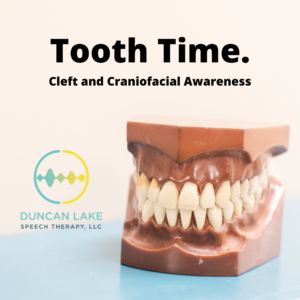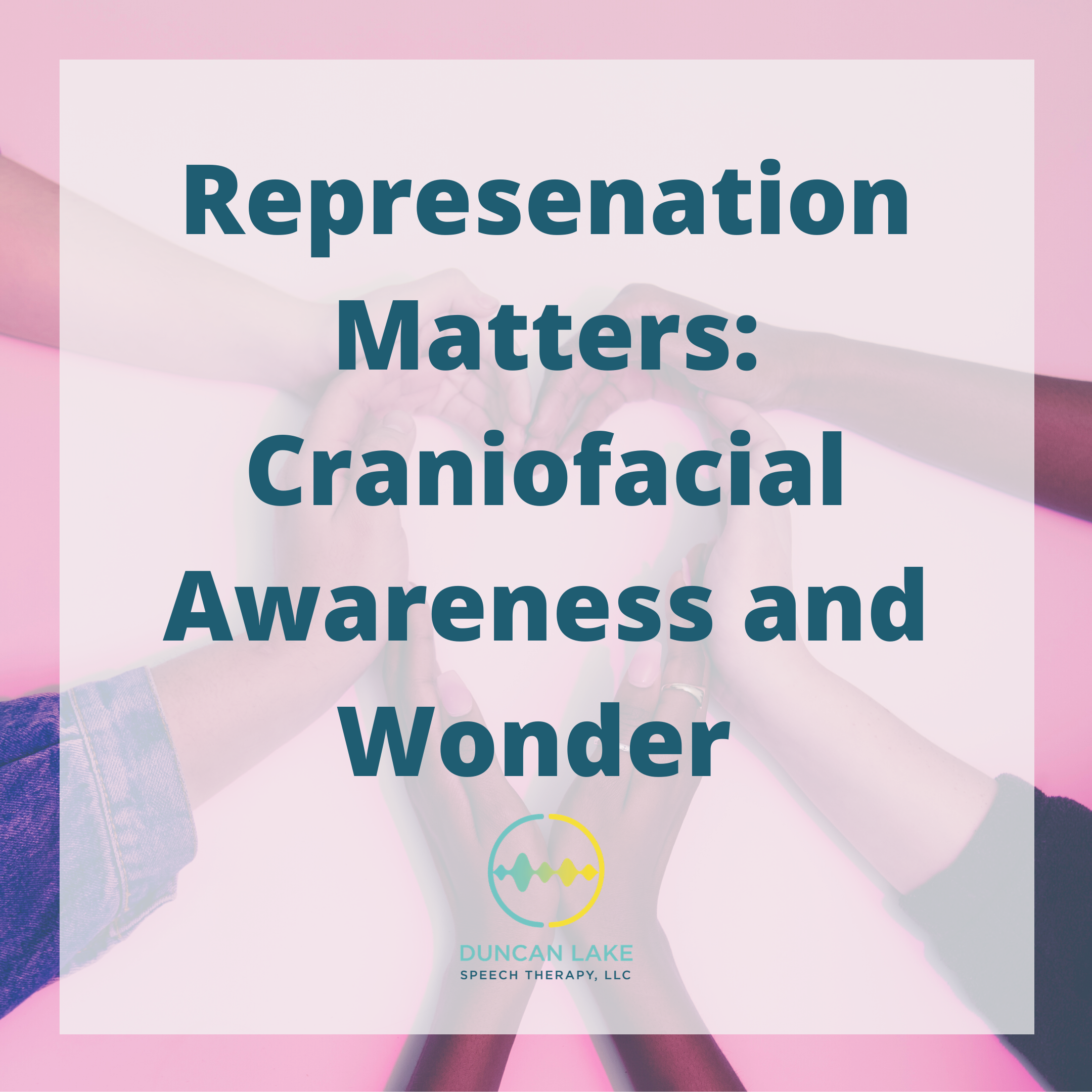If you follow my Facebook page, you’ll know that July is National Cleft and Craniofacial Awareness and Prevention Month. You’ll also know that I am not an expert in craniofacial conditions. However, I wanted to continue to shed light on this very important topic. I got to thinking about the things I know, craniofacial conditions, and how they might somehow align and wasn’t really sure what to write.
…and then I watched Stranger Things.
Who here watches this show?! Dustin (actor Gatan Matarazzo) has a craniofacial condition called cleidocranial dysplasia, which largely affects bones and teeth. You have noticed that in some of the scenes, he doesn’t have all of his teeth. And, as you may have guessed, teeth play a significant role in our speech production and feeding/swallowing, two big areas for speech-language pathologists.

So let’s talk teeth!
When it comes to speech production, our teeth are one of our many “articulators,” or speech helpers. Others include our tongue, lips, and palate. They act as a guide for our tongues when we produce certain sounds. Try it out – say “sssss” to yourself. Where is your tongue? Behind your teeth, right? Now imagine if your teeth weren’t there. Making that “ssss” sound may become a bit trickier. Even present, but misaligned teeth can pose problems to appropriate speech production. When a speech-language pathologist works with individuals with missing teeth on speech sounds, we help them to compensate and find other ways to make their sounds accurately.
As you can imagine, teeth also play kind of a big role in feeding and swallowing. Teeth are very important give us the ability to chew. You can’t really chew a steak without some sort of help from your teeth. SLPs are frequently called in for patients in nursing homes without teeth, but they can also help individuals with craniofacial conditions who are missing teeth. Feeding and swallowing is a huge topic, so I’ll save longer explanations for a later post. However, SLPs can help these individuals compensate for the lost teeth (i.e. finding ways to help dentures work for the patient). SLPs can also help advise on a modified diet of softer foods. The main goal is to ensure patient safety in eating and swallowing while also respecting the individual’s food preferences.
Teeth are pretty interesting, huh?
If you’re interested in knowing more about clefts and craniofacial conditions, check out FACES, the National Craniofacial Association.


